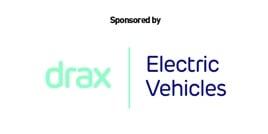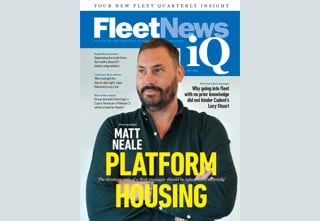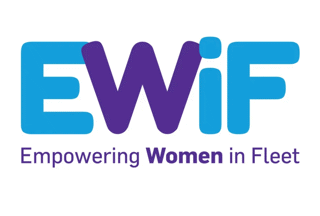This feature was taken from our Fleet Leadership special report

As technology, legislation and the way organisations operate have evolved significantly in recent years, so too have the responsibilities of the fleet decision-maker.
Gone are the days of the spanner-wielding fleet manager whose sole focus was to buy and keep vehicles on the road, to be replaced with a role which, as well as looking after the day-to-day operations, is much more strategic.
This includes creating and overseeing fleet management strategies looking at issues such as safety and cost, sustainable mobility strategies, or – perhaps the most topical – decarbonisation.
“Fleet has definitely taken a more prominent position than ever in an organisation and it’s not necessarily because they need somebody to do the nuts and bolts, the transactional stuff,” says Paul Hollick, chair of the Association of Fleet Professionals (AFP).
“It’s more the transformational stuff; the strategy about where the fleet needs to go over the next few years to improve operational efficiency, improve safety, drive down costs and how to decarbonise has become critical. You just can’t outsource some of those things.
“The role is also much more inclusive of softer skills, almost acting as an HR consultant at times.”
In response to the changing demands, Hollick says a lot of organisations are either creating new dedicated fleet roles, reversing earlier decisions to get rid of the position by re-establishing them, or strengthening existing fleet teams.
A recent example of this is Wheatley Group, which was named Most Improved Fleet Operator in this year’s Fleet News Awards.
The housing, care and property management group had previously worked with service leaders, ordering vehicles to their specifications, on a fleet of 150-200 vehicles based in specific locations.
The process was elementary, but served its purpose. However, as the fleet size grew beyond 400 vehicles, the added complexities demanded a new, more strategic approach.
“It was apparent from the size and scale of the organisation, our national context, our service levels with our customers and our ability to manage warranty issues and fleet dynamics had outgrown the service leader approach,” says Laurie Carberry, its director of procurement, processes.
“It couldn’t be a bolt-on role; it needed a dedicated fleet manager.”
Since Jenny Dolan was appointed to fill the role, the company has made major fleet savings, significantly improved safety and has started its electrification journey.
“None of this would’ve happened without having a fleet manager,” says Carberry. “The organisation’s dependency on Jenny and the team is huge now.
“This is a solid team in which we are looking to invest because the returns are tangible. We couldn't be without them.”
Raised profiles
For many organisations, the need to transition to electric vehicles (EVs) has been the key factor in creating new roles, while it has also increased the profile of existing fleet decision-makers within their organisations – among both senior managers and drivers.
“Until EVs came along, the car fleet had been a bit flat for about seven or eight years,” says Matt Hammond, head of fleet at Altrad UK.
“You were just churning the same numbers, trying to squeeze your CO2 down and screw manufacturers down to better terms.
“The drivers had lost interest and the younger ones, in particular, weren’t that bothered, they just bought a car.
“Now they know what’s going on. They know about the tech. They want to understand what it’s all about. There really is that buzz around it.
“It’s definitely lifting the industry and made everybody more passionate and understanding about what we’re doing.
“From a fleet management viewpoint, suddenly you’ve gone from being the guy down the bottom of the corridor nobody ever wants to go and see, to being in the busiest office in the building.
“Not only have you got all the drivers wanting to talk to you, you’ve got the ESG guy standing outside your door, you’ve got the FD standing outside your door. It’s great – you’re a man in demand.”
However, while it is overwhelmingly positive news for the sector that dedicated fleet managers are back in vogue, they must be able to show they add value to their organisation, says Hollick.
From a finance director’s or CEO’s point of view, if the fleet team is not adding value then there will always be questions around how valid the roles are and whether the responsibilities should be outsourced or insourced, he adds.
“The transactional element of just doing the paperwork can always be outsourced, but it the strategic element where extra value can be found,” says Hollick.
“This could be working with your finance directors, line managers and HR community to drive the fleet forward and improve the quality of your choice list, the quality of your driver happiness and wellbeing while they’re out on the roads, improving safety and driving down costs.
“Perhaps the biggest thing at the moment is decarbonisation. You really need someone in your organisation that owns your data and information about where you are before you can work out where you need to be. If you don't have a good steer on your data, you've got no hope of working out how you're going to be able to create a decarbonisation journey.”
Mixed backgrounds
A further evolution in the position of a fleet decision-maker is that while traditionally they tended to have a mechanical or engineering pedigree, people carrying out that role are now coming from different backgrounds, such as procurement, facilities or HR.
This does mean there may be some knowledge gaps which would not have existed in the past, says Steve Winter, former fleet manager at Centrica and now a fleet consultant.
“The role now is very different to how it was in the past,” he adds. “But you still need someone who understands the mechanics of a fleet, and there are many factors which, all too often, won’t be naturally understood if responsibility for the fleet is in a procurement, HR or facilities function.”
Of course, skills and knowledge can be learned and the sector is full of highly-competent fleet decision-makers from those backgrounds who have dedicated time and effort into getting to grips with the sector.
Plenty of help is available for both new and experienced fleet decision-makers. This can take the shape of resources and advice from sources such as trusted leasing companies and suppliers, while help with specific areas of fleet management can be gained from organisations such as Driving for Better Business (DfBB), Energy Saving Trust (EST), road safety charity Brake and the Royal Society for the Prevention of Accidents (RoSPA).
The DfBB, for example, is a free programme from National Highways which aims to help organisations reduce work-related road risk, control the associated costs and improve compliance with current legislation and guidance.
It offers tools and case studies to help organisations evaluate practices, strengthen culture, enhance performance and demonstrate leadership in the management of work-related road risk.
Earlier this year it launched an interactive Driving for Work Policy Builder to help fleet decision-makers create, review and update their own policy to meet their legal requirements to minimise risk.
Meanwhile, the EST focuses on decarbonisation and offers free advice on topics such as how fleets can transition to EVs.
Benefits of training
A wide variety of training courses are also available to those in the fleet sector, and these have numerous benefits for both employee and employer.
A more effective fleet decision-maker will help an organisation increase operational efficiency, ensure it is compliant and reduce costs.
For the employee themselves, training ensures they have the skills necessary to succeed in their role, improves their confidence and credibility, and allows them to meet career goals by addressing gaps in their personal development.
The importance and value of training is not lost on those in the fleet sector, with Hollick reporting the AFP’s range of courses is proving “unbelievably popular at the moment”.
“We’ve highlighted before that we believe an entire generation of high-level fleet expertise will be lost through retirement in the next few years and this means that training the fleet managers of the future is crucial,” he adds.
“There’s definitely a thirst for education, particularly classroom-based training rather than online, at the moment.
“All our courses are sold out for the rest of the year, and we’re just in the process of putting the dates out for the entire calendar for next year so people can start booking spaces, even if the course is next November.”
When the AFP was formed in 2020 from the merger of ACFO (Association of Car Fleet Operators) and the ICFM (Institute of Car Fleet Management), one of its aims was to train, educate and develop fleet professionals to raise the standards of corporate fleet operators and associated support service providers.
Range of courses
Through its Fleet Academy, it now offers members a range of both online and tutor-led training options.
“We always look out for new entrants into the fleet industry and how we can support those guys,” says Hollick.
“Sometimes people will take a job at a senior level but have no fleet experience at all.
“Although they’re massively skilled in terms of general management, sometimes they need that element of vocational qualifications that the AFP and others provide.”
Its Fleet Vehicle Management Pathway courses provide a development route for those looking to gain skills in a range of fleet roles, while its Accelerate programme focuses on specific topics.
These are designed to be a deep dive into subjects that are key for fleet professionals, with courses including making the switch to electric vehicles, transition to an eLCV Fleet, and funding and finance for fleet professionals.
Other accreditation schemes include FORS (Fleet Operator Recognition Scheme), which is a voluntary programme designed to improve standards in the road transport industry.
It assesses and recognises fleet performance in key areas – environmental impact, safety and operational efficiency – and provides a framework and sets benchmarks to help operators enhance their performance in these areas.
Training is offered for managers and drivers to enhance their expertise, competence, skills and overall effectiveness in their respective roles.
Undergoing training and gaining qualifications can also help a fleet decision-maker to advance their career.
“One thing we are seeing more and more in the jobs world is that those with qualifications, whether they are from AFP or FORS for example, are the people who are most sought after by organisations,” says Hollick.
“We sometimes see the more senior fleet managers moving companies into bigger or more defined roles, which is great to see, and they all tend to be involved with the AFP.
“There’s definitely a trend for organisations requiring skilled fleet professionals, not only at that senior level, but also ensuring people in their teams have got fleet accreditations to help set strategy and link the fleet with the business needs of the company.”
Stay up-to-date
It is also important for fleet decision-makers to stay up-to-date with current and future trends to enable them to shape strategies accordingly.
Events such as Fleet & Mobility Live provide access to a range of expert speakers – as well as suppliers – in one place, while the Fleet200 Strategy Network adds to this by providing networking opportunities with other fleet decision-makers.
“Networking events are really important to build relationships with your peers,” says Winter.
“There may be a presentation going on, and you may pay attention to it, but it’s often not the most important thing there.
“It’s often about sitting around the table and chewing the fat with other fleet professionals to share your challenges and they can share how they overcame them. I learned so much from that.”
Hollick says this sharing of knowledge can extend beyond in-person meetings once a relationship has been formed.
“If you network, you become conscious about industry challenges, headwinds and future concerns that might not even be on your radar at the moment.
“It also gives you the ability to pick up the phone, go on LinkedIn or use the AFP WhatsApp group to share insights and challenges.
“We regularly get at least 10 messages a day in terms of people wanting and offering advice; it’s been a real success.”
Sustainable mobility is more than just a shift towards electric vehicles; it encompasses a broader range of approaches that reduce CO2 emissions, cut costs, and improve employee well-being.
By encouraging employees to adopt alternative modes of transportation, you can significantly reduce your organisation's carbon emissions.
Our Fleet Leadership report explores innovative strategies for fleet leaders, including the use of a sustainable travel hierarchy to prioritise efficient and eco-friendly transport options. Learn how data, active travel, and innovative transport models can shape the future of sustainable mobility within organisations.

























Login to comment
Comments
No comments have been made yet.